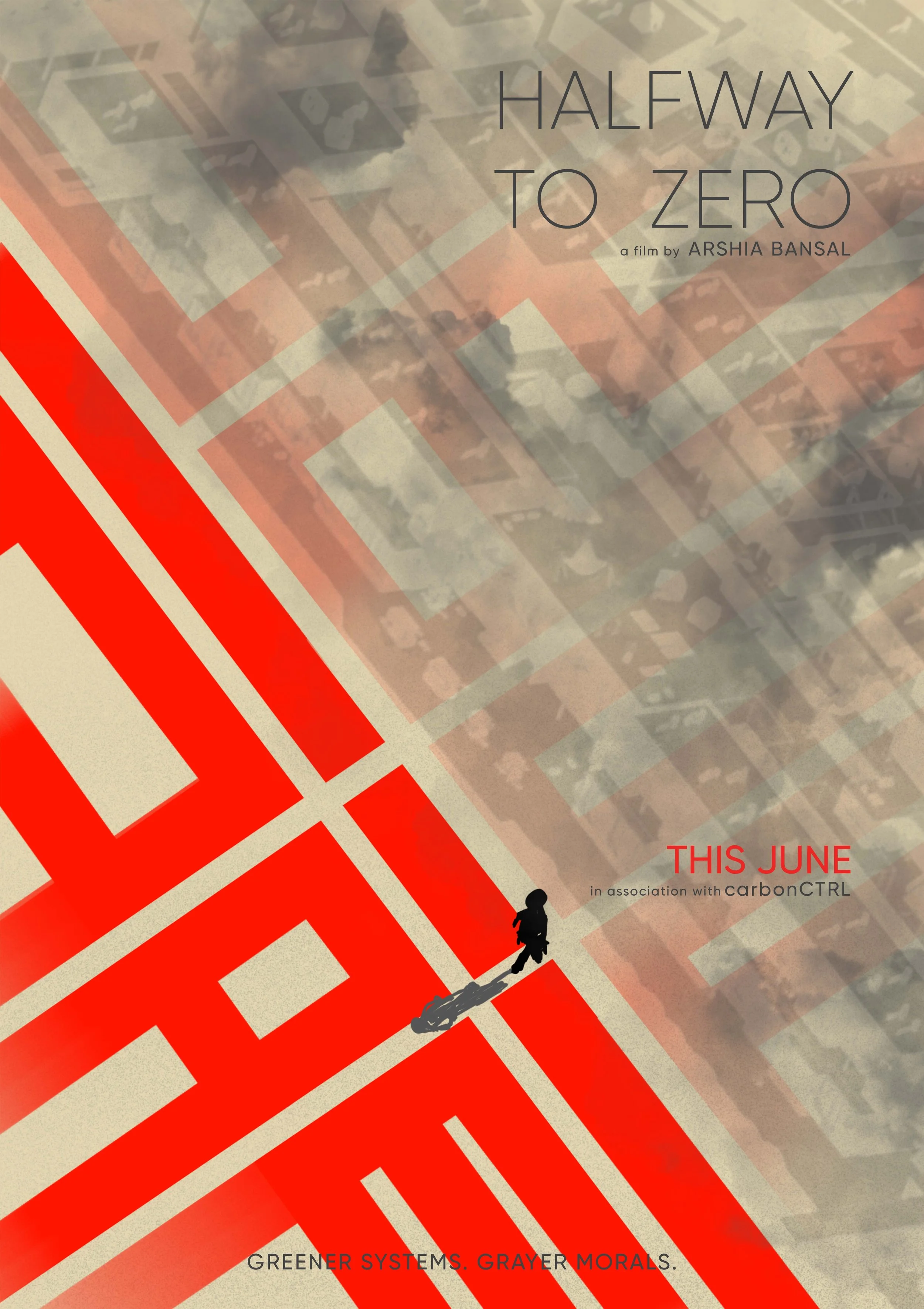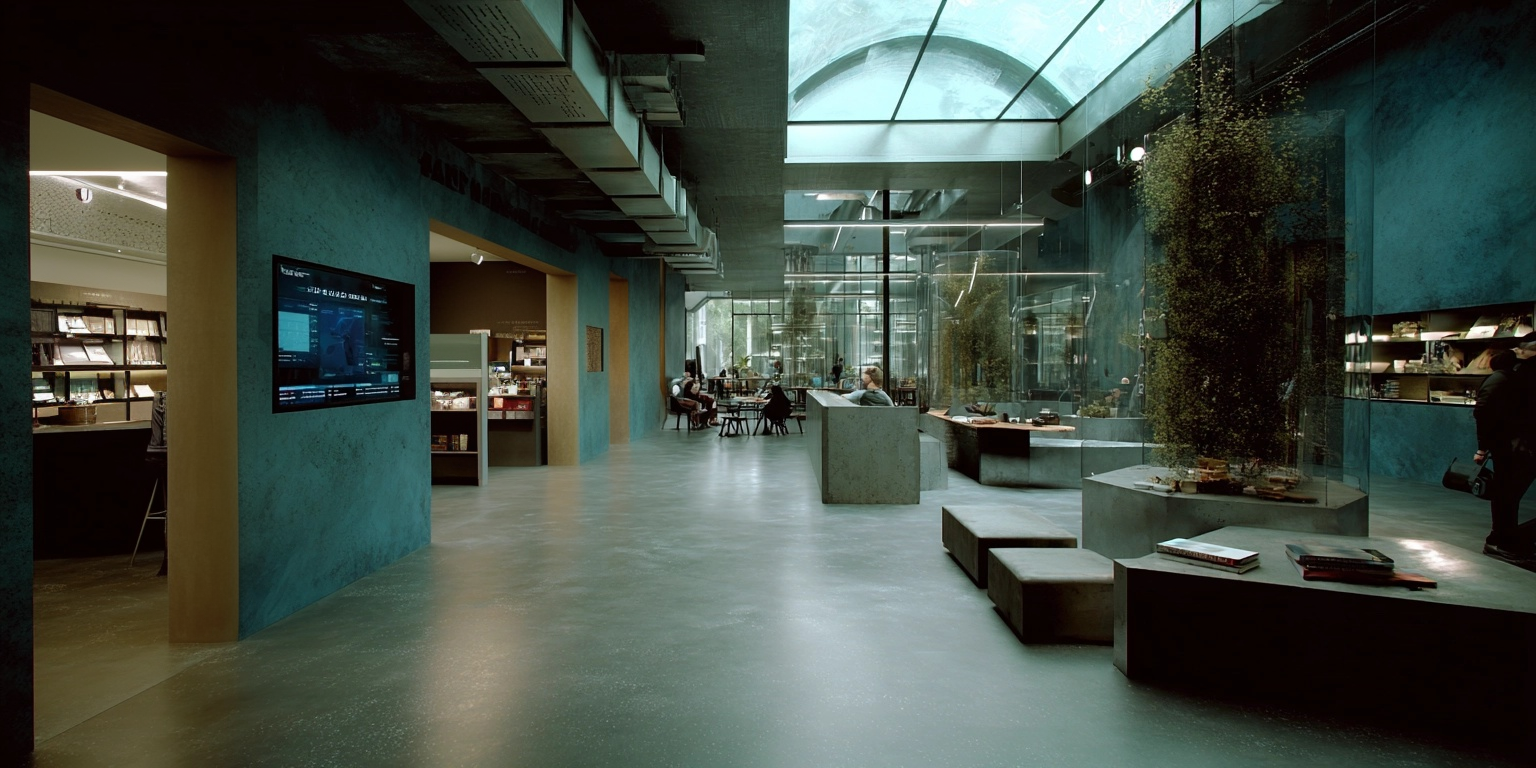
HALFWAY TO 0
by Arshia Bansal
The project investigates the implementation challenges of large-scale sustainability policies, examining disparities in regulatory standards, ethical dilemmas in carbon accounting, the consequences of greenwashing, and fundamental tensions between ecological objectives and economic priorities.
01. Ecological Interventions: investigating the relationship between natural systems and human interventions.
Film Logline: In a near-future India, a passionate climate tech enthusiast lands a job at a government Carbon Monitoring System (CMS) center, part of an ambitious plan to make Tier-2 cities 50% carbon neutral by 2050. Her dedication is tested when a powerful industrialist blackmails her into manipulating CMS data, revealing the unsettling clash between sustainability efforts and corporate greed. As the city celebrates false progress, she grapples with guilt, questioning the true price of a “greener” future.
Project Description:
The project explores a speculative near-future where India, in response to rising carbon emissions from rapid urbanization—particularly in Tier 2 cities—implements the GreenTech Bharat Vision Policy in 2025. The policy aims to make these cities at least 50% carbon neutral by 2050, focusing on emissions from under-construction and operational buildings. A key feature of the policy is the installation of CMS (Carbon Monitoring System) centres in each city, which track real-time carbon data using building-installed carbon calculators. The public can interact with this data through a transparent government website.
Set in this future, the film follows Meera, a 24-year-old mechanical engineer and climate activist working at a CMS Centre. When she is pulled into a moral grey zone involving emission data manipulation, her journey reflects the individual conflict between ethics and system pressures. Key props include a Carbon Card, a transparent ID that tracks citizens’ carbon footprints, and a disguised Access ID Hacking Device, which enables Meera to covertly navigate restricted data systems.
The entire project is symbolically packaged as a government binder, with thermochromatic ink–coated pages that turn blank until touched—illustrating how information is often hidden from the public, despite systems that promise transparency.
This project uses design, narrative, and speculative tools to question the integrity of data, governance, and individual agency in the face of an environmentally-driven digital future.
MIXED MEDIA SHORT FILM - Canon EOS R6, Adobe Suite, SketchUp, AutoCAD, Midjourney, Runway, ChatGPT





